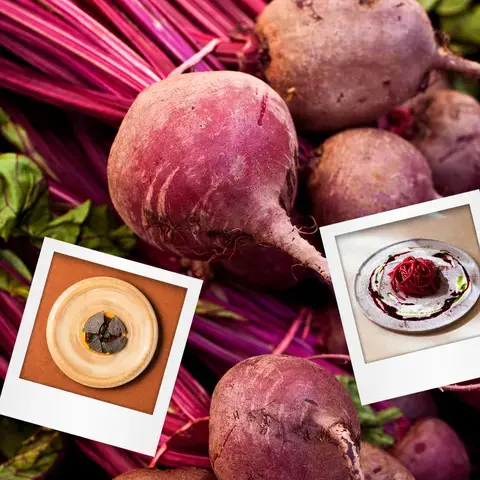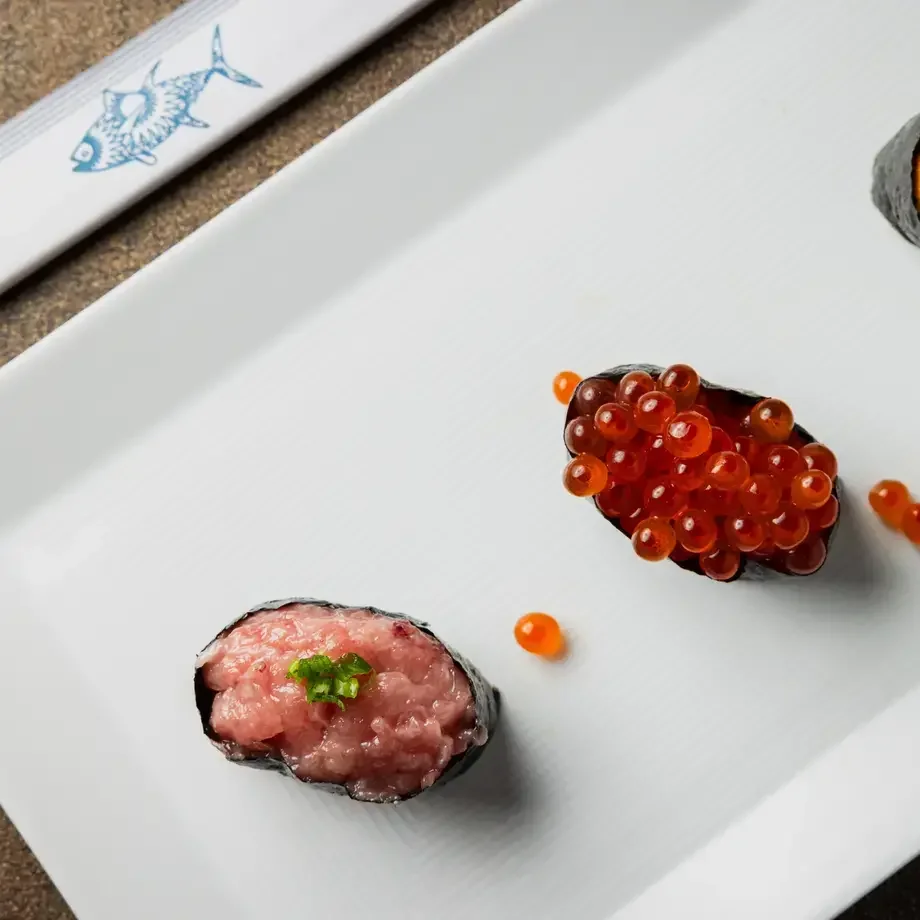The large fungi, once a common site in Japan’s autumn markets, and easily found on the forest floor, are no longer in such plentiful supply, however, and as they are virtually impossible to grow artificially, demand continues to rise.
What do matsutake mushrooms taste like?
People often use words like 'spicy' or 'cinnamon' to describe their flavour. They are very pungent and can overpower the flavour of other mushrooms or ingredients in a dish. They also have quite a piney note to them, which is unsurprising given that they naturally grow beneath pine duff.
How to clean and cook matsutake mushrooms
Chef recommend you wipe the mushrooms clean rather than washing them. They should then be sliced thickly to preserve their flavour. There is then a variety of different cooking methods to choose from, but the key is to keep it simple so the unique flavour is front and centre. They can be skewered with oil and salt and broiled, boiled in broth, steamed, or even eaten raw.
What Price are Matsutake Mushrooms?
If you want to enjoy the unmistakeable, autumnal flavour of matsutake mushrooms, you will have to shell out. They may not be as expensive as some of the other high-end fungi like white truffles, but selling for about $1000 per pound (about €900 for 0.5 kg), they can be compared to some rare varieties of black truffle. A typical punnet of about eight mushrooms can cost as much as $500.
Why are Matsutake Mushrooms so Expensive?
As disposable income in Japan has increased in the last few decades, coupled with the increased status of the mushroom in Japanese culture, demand for matsutake mushrooms has continued to grow. Depletion of the mushrooms’ habitat - the red pine forests, which have come under attack from the pinewood nematode, an invasive worm originally from North America - means supply of the fungi is ever-diminishing. The total annual harvest in Japan is now under 1000 tonnes.
What are Matsutake Musrooms used for?
Matsutake mushrooms are often given as gifts, sometimes by companies to clients in season hampers. They are commonly used in sukiyaki, a nabemono-style one-pot dish combining dashi, sake, mirin, and sugar. They are also used in matsutake gohan, a steamed rice dish made with kombu dashi, soy sauce, sake, and mirin. Because of their unique flavour profile, the mushroom us usually not over-worked and instead they are enjoyed thinly sliced, in hot soups or with steamed rice.
Can you eat pine mushrooms raw?
Yes, matsutake mushrooms can be eaten in the wild without being cooked, although of course you should always be sure you are correctly identifying the fungus before you chow down. Some connoisseurs claim that eating matsutakes raw is the best way to truly experience their full flavour and aroma. It is advisable to peel the stem and scrub or peel the cap if needed, and clean the mushroom well. The raw mushrooms can be prepared with an oil and salt.
How to Identify Matsutake Mushrooms?
The Japanese matsutake mushroom is of course a rare delicacy that can only be found in the red pine forests of the country. They are a pine mushroom which have a symbiotic relationship with the roots of certain pine and coniferous trees. The closely related matsutake mushroom of North America can be found in pine forests at altitude quite easily. The matsutake mushroom can be identified by its spicy, organic smell. They are white with brown stains that could look old or grubby. The gills are white, and as with all Tricholomas, the spore print is white.
Discover other 15 Different Mushrooms and How to Cook Them and here you are 10 Easy Mushroom Recipes For The Perfect Meal!













